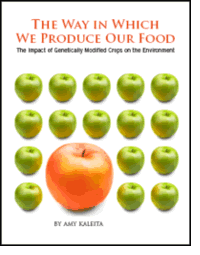San Francisco–The Pacific Research Institute (PRI), a free-market think tank based in California, released a new report examining the environmental and health concerns associated with genetically modified (GM) crops. The Way in Which We Produce Our Food, by Amy Kaleita, Ph.D., PRI senior fellow in environmental studies, concludes that genetically modified crop regulations are often based on fear: “Over-regulation of GM crops has little to no environmental benefit, and instead discourages genetic diversity, encourages corporate monopoly, and limits opportunities for farmers on the margins.”
The study presents the basic science of genetic crop modification, an overview of environmental concerns associated with GM crops, and an analysis of the validity of these concerns. It also includes recommendations for sound policy based on science and safety including:
- Avoiding “event-specific” regulation
- Avoiding “feel-good” regulation based solely on securing public confidence
- Evaluating GM crops at the agricultural system level by comparing their net benefits to current conventional alternative.
“Increased regulation of genetically modified crops does not have significant environmental or health benefits, and indeed, has a number of negative impacts on both,” said Dr. Kaleita. “The goal is to ensure an adequate and stable food supply, and GM crops can be a means to that end.”
“Some caution is necessary—but any regulation should be based on science and risk assessment, and should not be create unnecessary hurdles for beneficial products,” she said.

